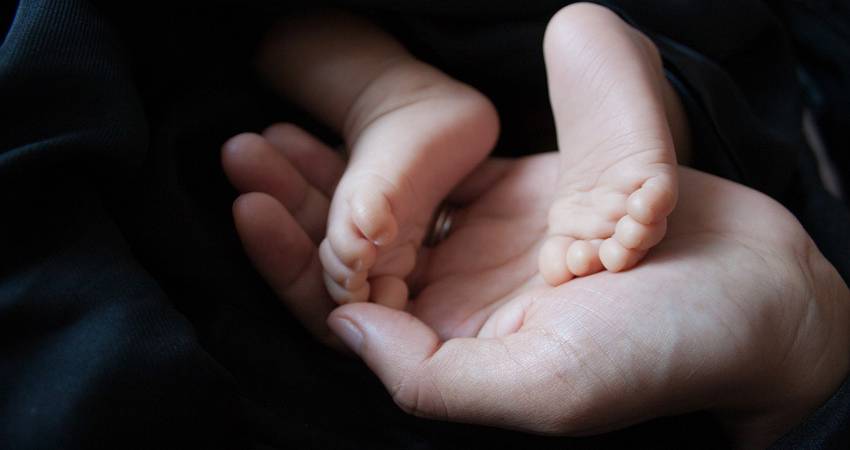
Ironic 'Christmas Present' from the Committee on the 8th must be rejected
It has now been confirmed that subject to sign off on a final report, the recommendations of the Joint Oireachtas Committee on the Eighth Amendment will be published on Wednesday 20th December. We can safely predict that it will call for abortion on widespread grounds, and this only days before Christmas, which celebrates the birth of a child. The horrible irony of this should not be lost on anyone.
After Christmas, the Report may then be debated in the Dáil and Seanad. It takes no great feat of the imagination to suggest that a kind of a hallowed deference will be given to the Report and that members will be ‘invited’ to abide by and support its recommendations. As far as Parliamentary etiquette is concerned it is considered extremely bad form to do anything less. In point of fact, until very recently it was almost unprecedented for the Report of an Oireachtas Committee to be over-ruled and for its recommendations to be rejected.

However, that is exactly what happened with respect to the work of the Joint Committee on Health and its examination of the issues surrounding the use of Medicinal Cannabis.
In that particular instance a precedent was set for the rejection of any future Report that emanates from the various Committees of the Oireachtas, including the Joint Committee of the Eighth Amendment.
The background is as follows: in July 2017 the Health Committee, having forensically scrutinised the issue, unanimously decided to reject the Cannabis for Medicinal Use Regulation Bill 2016.
Among the reasons cited by the Committee members were the facts that the Bill had technical issues and implementation difficulties, that it may have unintended policy consequences (including leakage of supply of cannabis to recreational markets and a lack of safeguards against harmful use of cannabis by patients),as well as the fact that there were major legal issues in terms of reconciling the Bill with existing law.
What happened after this was practically unheard of. A Motion debating the rejection of the Bill by the Committee made its way to the floor of the Dáil on Thursday November 9 .
During that debate it was left to the Chairman of the Health Committee, Dr Michael Harty, to alone defend the original Report and the legitimacy of the reasons it gave for the Bills rejection.
All of the other Committee Members by that point had abandoned their original position. They had given up their fears and concerns for public safety and had decided, in what can only be described as an embarrassingly ‘populist’ volte face on the issue, to instead vote that the Bill should in fact now proceed to Report Stage (thus making it one step closer to becoming law.)
This was in direct contradiction to their original stance less than four months previously.
It was as blatant an example of putting electoral advantage ahead of evidenced-based public health concerns as one could hope to find.
This particular parliamentary farce is instructive for a number of important reasons. One of which is that it will now be increasingly difficult for the member of any of the political parties or groups to argue that the Report of the Committee of the Eighth Amendment should somehow go unchallenged on the floor of the Dáil.
The fall-back (some might say scapegoat) position of simply deferring to a Committee’s Report has been permanently removed.
In reality that is unlikely to happen bar a sudden outbreak of conscientious objections among our political class.
In the end there are two possible ways of looking at this. The first is that the Committee system has been radically undermined. The second is that an act of political expediency has inadvertently created an opening for a fairer scrutiny of the issues that were not investigated at the Committee stage.
Featured
- Every Life Counts: sending love and care for sick babies
- "A step backwards": Jersey has legalised Assisted Suicide
- 8,000 babies saved by Abortion Pill Reversal
- Spain Moves To Restrict Pro-Life Protests Near Abortion Clinics
- Mediums and abortion: a dangerous narrative
- Man jailed for 9 years for forced abortion
- Abortion coercion has arrived in Ireland – the NWC are silent
- Review of at-home abortions 'needed after coercion case'
- French Govt to remind 29-year-olds of biological clock
- Huge factor in decline in primary school numbers ignored
- Germany Denies Promoting Abortion Abroad—While Funding Pro-Abortion NGOs
- Govt don’t oppose Coppinger abortion bill at 1st stage
- March for Life: Vance, the White House, and a Divided Pro-Life Movement
- Paris’ Annual March for Life Puts Euthanasia in the Spotlight
- Britain’s seemingly limitless abortion rate
- The importance of the work carried out by Every Life Counts
- Puerto Rico officially recognizes unborn children as ‘natural persons’
- Rally for Life 2025



























